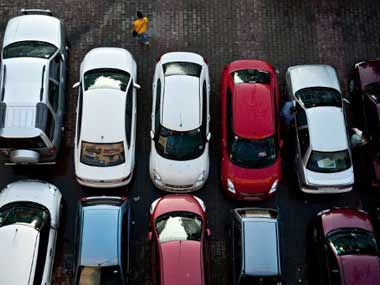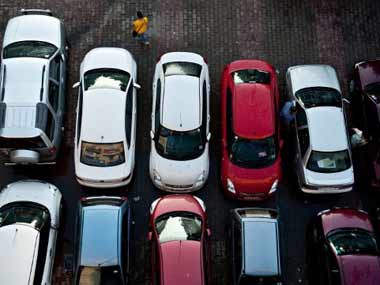“Statistics are like bikinis” said Aaron Levenstein. “What they reveal is suggestive, but what they conceal is vital.” Levenstein was an American professor of business administration who died in 1986.
In simple English, statistics never reveal the complete story and can lead to wrong inferences being made. Take the case of domestic passenger car sales number for August 2013. Media has gone to town highlighting the fact that car sales have risen by 15.4% in August 2013, in comparison to August 2012. Also, car sales have risen first time in ten months is another point that has been made. This has been used to infer that the Indian economy is looking up again and the consumer demand is coming back to the market. The situation is far from that.
Let’s look at the numbers. In August 2013, car sales stood at 1,33,486 units. This was 15.4% higher than 1,15,705 units sold in August 2012. So far so good.
[caption id=“attachment_1101225” align=“alignleft” width=“380”]  In August 2013, car sales stood at 1,33,486 units. This was 15.4% higher than 1,15,705 units sold in August 2012. AFP[/caption]
This substantial jump in sales came because Maruti Suzuki managed to sell 76,018 units in August 2013. In comparison, it had sold only 50,129 units in August 2012. This 51.6% jump in sales of Maruti cars, helped the overall car sales jump by 15.4% in August 2013. What analysts call the base effect was at work.
The question to ask here is why did Maruti see a more than 50% jump in sales in August 2013 in comparison to August 2012? Smaller car manufacturers can see that sort of a jump in sales. But for the country’s biggest car manufacturer to see a 50% jump in sales under normal conditions, is almost impossible.
The answer lies in the fact that in August 2012 there was a lockout at the Manesar plant of Maruti, after labour troubles and this in turn affected the production of Maruti cars. So Maruti sold fewer cars in August 2012 not due to lower demand, but because it could not produce enough cars to meet the demand. And given that things in August 2013, have just got back to normal for the company.
Lets look at car sales in August 2011. During that month Maruti had managed to sell 77,086 units in the domestic market. Let’s assume that there had been no lockout at the Manesar plant of Maruti in August 2012, and the company had managed to sell 77,086 units during the month, like it had a year earlier in August,2011. In that case, it would have sold 26,957 units (77,086 - 50,129) extra, in comparison to the 50,129 units that it actually sold.
The overall car sales for August 2012 would have stood at 1,42,662 units (1,15,705 + 26,957) in comparison to the actual sales of 1,15,705 units. And this is the right number to use while comparing sales of August 2012 with that of August 2013, in order to adjust for the lockout at Maruti’s Manesar plant.
Hence, the overall car sales should have stood at 1,42,662 units in August 2012. Given this, the car sales for August 2013 are actually down by 9176 units (1,42,662 - 1,33,486) or 6.4%. This is something that is reflected in what Sugato Sen, the Deputy Director General of Society of Indian Automobile Manufacturers, told reporters yesterday “This (growth) is not a reflection of the market conditions. This is mainly due to Maruti’s numbers compared to last year. The tough market conditions still remain. Interest rates are high, fuel prices continue to be high while sentiments are extremely low.”
Car sales in India have slowed down for 10 consecutive months. And what that basically tells us is that people who can buy cars are worried about their economic prospects, and hence, are postponing their purchases. Floyd Norris writing in The New York Times explains it best: “New-car sales can be a particularly sensitive economic indicator because few people really need to buy a new car, and thus tend not to do so when they feel uncertain about their economic prospects. Even if a car purchase can no longer be delayed, a used car is an alternative.”
Postponing the purchase of a car obviously has an impact on the car company. But it also has an impact on a host of other companies. As T N Ninan wrote in a brilliant column in Business Standard in January 2013 “The car industry is a key economic marker, because of its unmatched backward linkages - to component manufacturers, tyre companies, steel producers, battery makers, glass manufacturers, paint companies, and so on - and forward linkages to energy demand, sales and servicing outlets, et al.”
Car sales, unlike a lot of other numbers like inflation, GDP growth, which reflect the state of the economy, is not a theoretical construct. It is a real number. And if it is falling, what it clearly tells us is that the Indian economy is slowing down. There is no better number to show that.
_
(Vivek Kaul is a writer. He tweets @kaul_vivek)_


)
)
)
)
)
)
)
)
)



